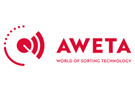There seems to be no brake on technological progress and the AGF sector is also more than taking advantage of it, both in cultivation and at the packing station. "Right now, we have launched the latest pepper camera system, which uses AI," says Norman van der Gaag, commercial director at Aweta. "This system offers a way to sort peppers by external quality. With a new imaging technique, we have a much larger database of examples of products with and without defects, and of the different types of defects. That database is then presented to an algorithm that learns to make the distinction itself."

Advanced camera techniques
Aweta uses the latest generation of cameras in its sorting solutions. "These are high-resolution digital cameras. We make a hyperspectral camera setup with a mix of color images with different infrared wavelengths. Multiple cameras look at the pepper from different angles. This system is called the Twin Vision generation. By superimposing all those images and running artificial intelligence on them, a lot of defects can be distinguished from each other."
Smart parameters for peppers
Last year, on behalf of Cooperative Harvest House U.A. and in cooperation with its member company Zwingrow, a company specializing in growing and packing peppers, a new system capable of automatically detecting various defects in peppers was set up. The grading parameters are assessed individually and can be set individually depending on the desired sensitivity. Examples of these parameters include shape, sunburn, aphid, cut damage, and bruising. Applying vision technology in the sorting process ensures that only undamaged fruit enters the chain, which increases both the physical product quality and shelf life, resulting in fewer rejects and waste in the chain. It also saves labor and provides detailed insight into important crop technical information.
Flowmaster: intuitive user interface
Flowmaster is the user interface that enables the operator to get the most out of the camera technology and grading machine. The software is very user-friendly and provides a lot of visual feedback to allow quick switching to respond to market needs. This provides a total overview and control of the sorting and packing process. The sorting results are displayed in a very comprehensive batch report, for inspection of sorting and growing information. This information can also be used for further export to database systems for processing in Power BI tooling and/or ERP systems.
Cooperation with Zwingrow
"It is now 1 year since we were invited to Aweta for a demonstration of what should be possible with the new Aweta camera system. The software wasn't there yet, but we could already see the different defects and anomalies the camera could see. That was the decisive factor for us to go down this route with Aweta," says Bart van der Valk, co-owner of Zwingrow. "We had calculated that we would need at least a year to achieve a well-functioning system. Especially since most quality problems only emerge in the summer after which really good scans and adjustments could only be made. The agreements we made with each other were clear. We would indicate/share our experiences in terms of quality problems that should be sorted out and Aweta would make scans of all defects with their specialists and write software."

"I am really surprised at the speed of development and progress made. There has been incredible hard work by the team which has managed to put up a good working product within a sorting season. The machine is now capable of sorting the quality on various parameters, such as aphids, bumps, rot, sunburn, noses, cut damage, and broken fruit. Sorting out all defects is now going better and better, and just as importantly, the number of good fruits between classes 2 and 3 has now decreased to a minimum number. Even a dried flower sitting on the side of a sweet pepper is recognized in most cases and therefore does not get into class 2 as a cut defect."
"New updates are added weekly to improve the system. For example, we recently had a major update that gives us much more and clearer insight into the defects score that determines which class the pepper is assigned to. We are therefore very satisfied with the result and can notice this directly in the labor requirements in the sorting process. Compared to last year, we have improved performance standards, which saves on labor. The feedback of the lot data also gives us much more insight and with this information we can pay extra attention at our nurseries to various specific diseases, pests, and handling damage such as bumps and cuts", says Bart.
Total solution for sorting, packing and palletizing
Aweta offers integrated solutions. Not only are sorting machines supplied, but automatic filling, palletization, and order management are also part of the range. "From one operator position, the entire installation can be operated, which offers added value. Moreover, the installations can be linked to the customer's ERP system. This allows various analyses to be performed on a sorted batch, providing valuable information for the packer," Norman concludes.
 For more information:
For more information:
Norman van der Gaag
Aweta
Kwakelweg 2
2641 WW Pijnacker
Tel: +31 (0)88 6688000
[email protected]
www.aweta.nl
